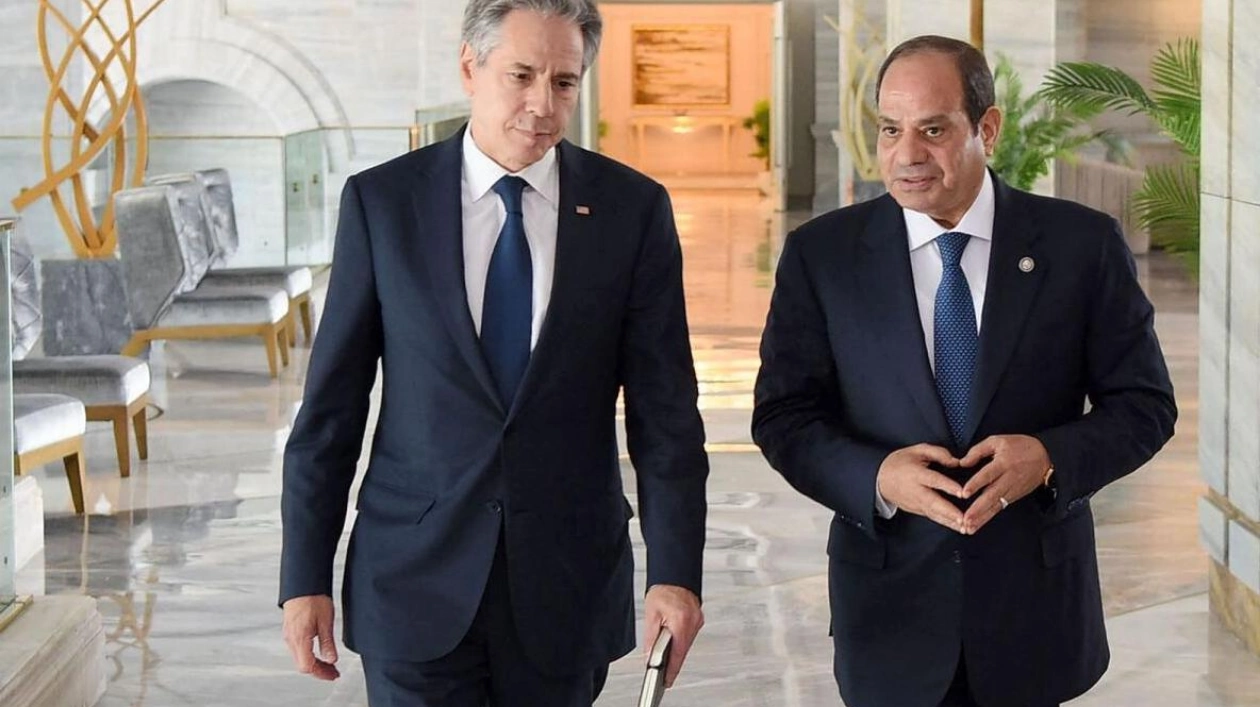A ceasefire agreement in Gaza, according to an anonymous US official who spoke to reporters, is 90 percent ready. Israeli Prime Minister Benjamin Netanyahu quickly dismissed this assessment as inaccurate. However, within hours, Secretary of State Antony Blinken insisted that the agreement was indeed 90 percent complete. With a little over four months left in office, President Joe Biden's administration is ramping up its diplomatic efforts for a Gaza deal, maintaining a public stance of optimism despite weeks of delays and setbacks.
A breakthrough could provide a significant boost—a much-talked-about 'October surprise'—to Biden's successor, Kamala Harris, in her tight race against Donald Trump for the White House. Experts believe the United States has no choice but to continue its efforts. Since Israel announced on September 1 that Hamas had killed six hostages, including one with US citizenship, the Biden administration has emphasized the urgency of a truce, even as Netanyahu—heading a fragile far-right government—has vowed no concessions despite widespread protests from Israelis who favor a deal.
Blinken acknowledged that until both sides give a final 'yes,' the delicately negotiated package to end 11 months of bloodshed could collapse at any moment. Each day brings the risk of 'an intervening event which simply pushes things off and runs the risk of derailing what is a pretty fragile apple cart,' Blinken said on Thursday. Biden personally presented a plan on May 31 that would halt fighting for an initial six weeks and see both sides release captives.
The United States, working with Arab mediators Qatar and Egypt, has sought in recent weeks to bridge remaining gaps. One of the biggest obstacles has been the Gaza border with Egypt, known as the Philadelphi Corridor. Netanyahu has demanded a presence by Israeli troops who seized posts from Hamas. US mediators are exploring a formula on where and when Israeli troops withdraw, with the deal specifying withdrawal from 'densely populated' areas; but they also need to appease an angry Egypt, the first Arab country to make peace with Israel.
Despite intensive US diplomacy, a mounting death toll, and overwhelming Israeli public support for a deal, both Netanyahu and Hamas leader Yahya Sinwar see their political survival at stake by accepting, said Merissa Khurma, director of the Middle East program at the Wilson Centre in Washington. 'I honestly don't see any major breakthrough. I think particularly Netanyahu is very much aware of the US political timeline and the domestic component,' she said.
Biden strongly supported Israel after the October 7 attack by Hamas, the deadliest in Israel's history, which according to official figures resulted in the deaths of 1,205 people, mostly civilians including some hostages killed in captivity. Biden has since criticized Israel for not doing more to protect civilians in its relentless military campaign in Hamas-ruled Gaza, where authorities say nearly 40,000 people have died. However, Biden has, with one exception, stopped short of using the ultimate leverage—curbing the billions of dollars in US weapons to Israel—thereby angering some on the left of his Democratic Party.
Harris's election rival Donald Trump has had a strained relationship with Netanyahu, but his Republican Party is overwhelmingly pro-Israel. The Arab American Institute, which advocates greater support for the Palestinians, said its polling shows that Harris has more to gain than lose from a tougher stand on Israel, while the reverse is true for Trump. Ghaith Al Omari, a senior fellow at the Washington Institute, agreed that neither Netanyahu nor Hamas appeared interested in closing gaps, and he noted the difficulty of remaining issues. 'Just because we have 90 percent done doesn't mean that we're any closer to a deal,' he said.
'I don't believe that the US negotiators are naive. They know the difficulty. But I think what we see right now is an attempt by the US to keep the negotiations alive,' said Al Omari, a former Palestinian Authority adviser. Calm in Gaza is a prerequisite if Saudi Arabia is to move forward in talks on the landmark step of recognizing Israel. Blinken said on Thursday he believed a deal remained possible in Biden's final months—hoping to incentivize Netanyahu, knowing how eager he is for Saudi normalization.
Al Omari said the United States also had to keep up its ceasefire push to restore stability in the vital Red Sea and prevent even greater violence in the region, including an all-out Israel-Lebanon war. 'This is the Middle East. It can always get worse, and it usually does,' Al Omari said.






